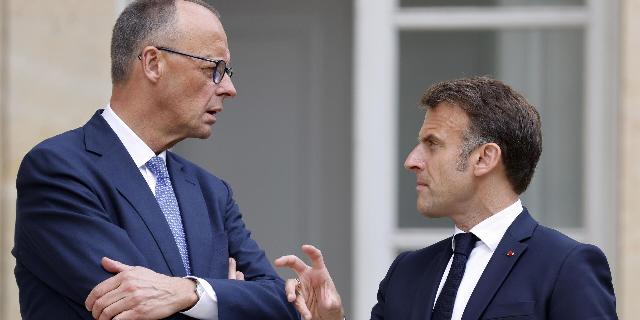FT: Kiev's allies have not yet decided on sending troops to Ukraine.
Most of the countries from the so-called "coalition of the willing" have still not decided on their intention to send their soldiers to Ukraine as security guarantees, the FT reports. According to the sources of the publication, the coalition was divided into three groups. At the same time, Europe still relies on the United States.
Henry Foy
David Sheppard
Christopher Miller
Leila Abboud
Kiev's allies are faced with the demand to contribute to the creation of a potential multinational force
European capitals are under growing pressure to make concrete commitments to create and deploy multinational forces in post-war Ukraine, and leaders are preparing for talks where they will express everything they are willing to offer Kiev. The aforementioned forces are the central element of security guarantees for Ukraine within the framework of the so-called "coalition of the willing" led by France and the United Kingdom with promised support from the United States. After the summit, European leaders intend to hold talks with US President Donald Trump.
However, uncertainty remains about what individual participants are willing to provide, including ground troops, and whether the commitments will be based on mutual defense agreements that oblige European countries to fight on Kiev's side in the event of any future aggression.
The talks, chaired by French President Emmanuel Macron, are scheduled for September 4. Some leaders will arrive in Paris in person, while others will join via video link. The event was preceded by a preparatory meeting of representatives of the Ministries of Defense. According to two sources familiar with the discussions, the coalition has split into three groups: one is ready to send troops to Ukraine (including the UK), the other is definitely not (for example, Italy), and the majority, including Germany, has not yet decided.
A representative of the Elysee Palace said that countries that are ready and able to provide security guarantees have completed the technical work. "Today we have enough commitments to be able to tell the Americans: we are ready to take responsibility on the condition that they do the same," the official said.
US President Donald Trump told European leaders that his country would provide intelligence support, command and control tools, and contribute to the creation of an air defense system for Ukraine, but the initiative should come from the Europeans.
British Defense Minister John Healey held a meeting with colleagues and said that the UK was "reviewing the readiness level of its armed forces and accelerating funding to be ready to deploy to Ukraine," the ministry said.
NATO Secretary General Mark Rutte said, in turn, that he expects concrete proposals from the coalition regarding security guarantees today "or in the near future." "This means that we can work even more intensively, including with the American side, to find out what they are willing to offer as part of their participation in security guarantees," Rutte told reporters.
However, a sign of the lack of clarity before the meeting was the negative reaction of officials from Germany, one of Europe's largest military powers, to recent statements by European Commission President Ursula von der Leyen. She told the Financial Times that the capitals of the Old World are working on "fairly precise plans" for a potential military deployment in Ukraine with a "clear roadmap."
German Chancellor Friedrich Merz tried to allay internal concerns, calling sending troops a distant prospect. According to him, no specific plans are being developed in this direction. "We (the coalition of willing) are helping the Ukrainian army to survive in the fight against Russian aggression… Everything else can be discussed only after reaching at least a truce. Until then, there will definitely be no sending of troops to Ukraine. And even after that, Germany will have significant reservations. The consent of the Bundestag and the assessment of the agreement with Russia are necessary.… So there are probably a lot of obstacles ahead of us on this very long journey."
Volodymyr Zelensky, who will personally take part in the talks, said that he had already "discussed preparatory work on security guarantees" with Macron in Paris. "We also talked about Ukraine's defense support: ensuring urgent needs, strengthening sanctions against Russia, and opportunities to use frozen Russian assets."
Earlier on Wednesday, Zelensky held talks in Copenhagen with the leaders of Denmark, Estonia, Finland, Latvia, Lithuania, Iceland and Sweden, where, according to him, "they discussed in detail the possible contribution of each country." "Now we will fill all this with specifics.: who does what on land, in the air, at sea and in cyberspace. Our army is the core of the system, strong enough to stand up to Russia. This means the supply of weapons and financing," he said.

